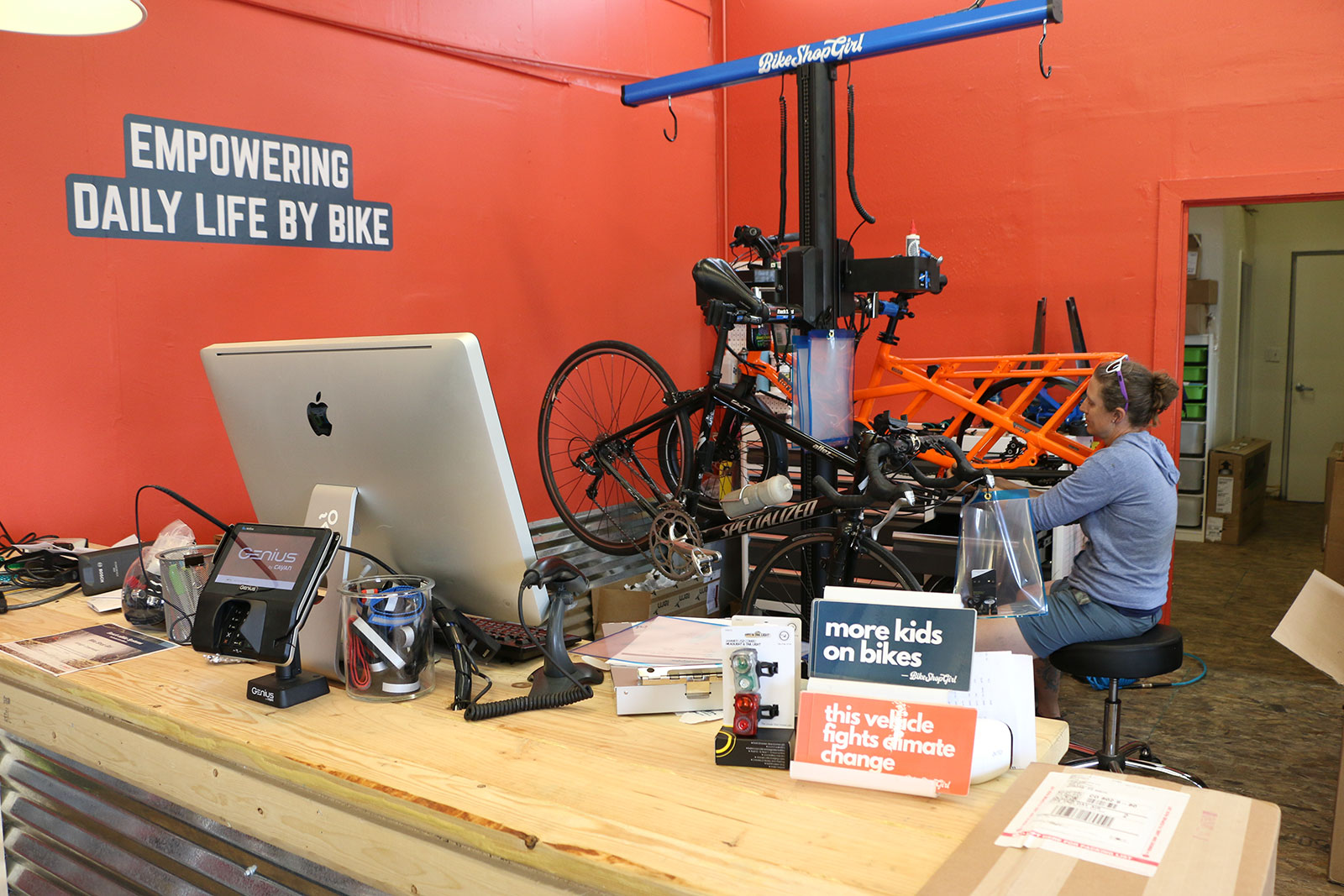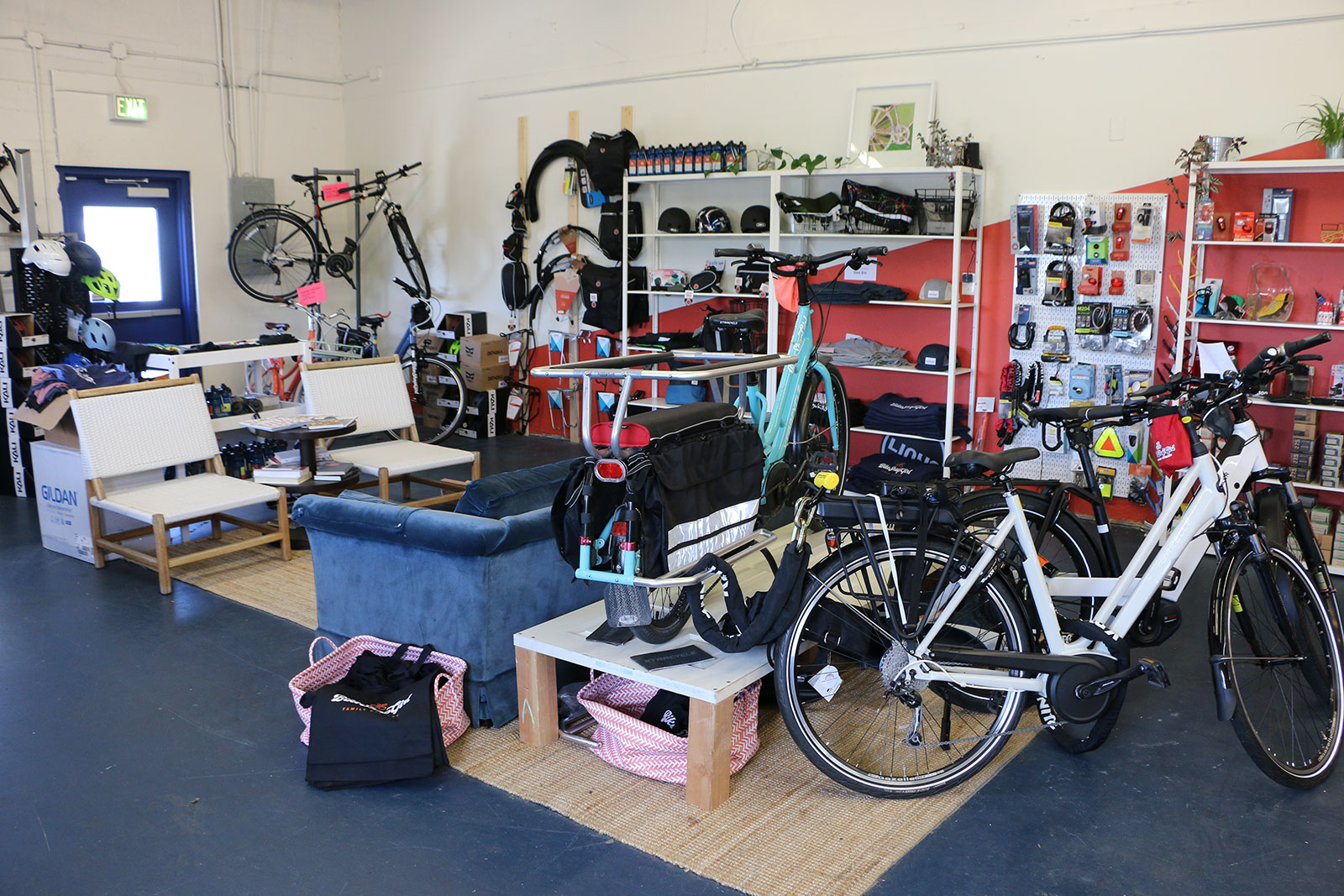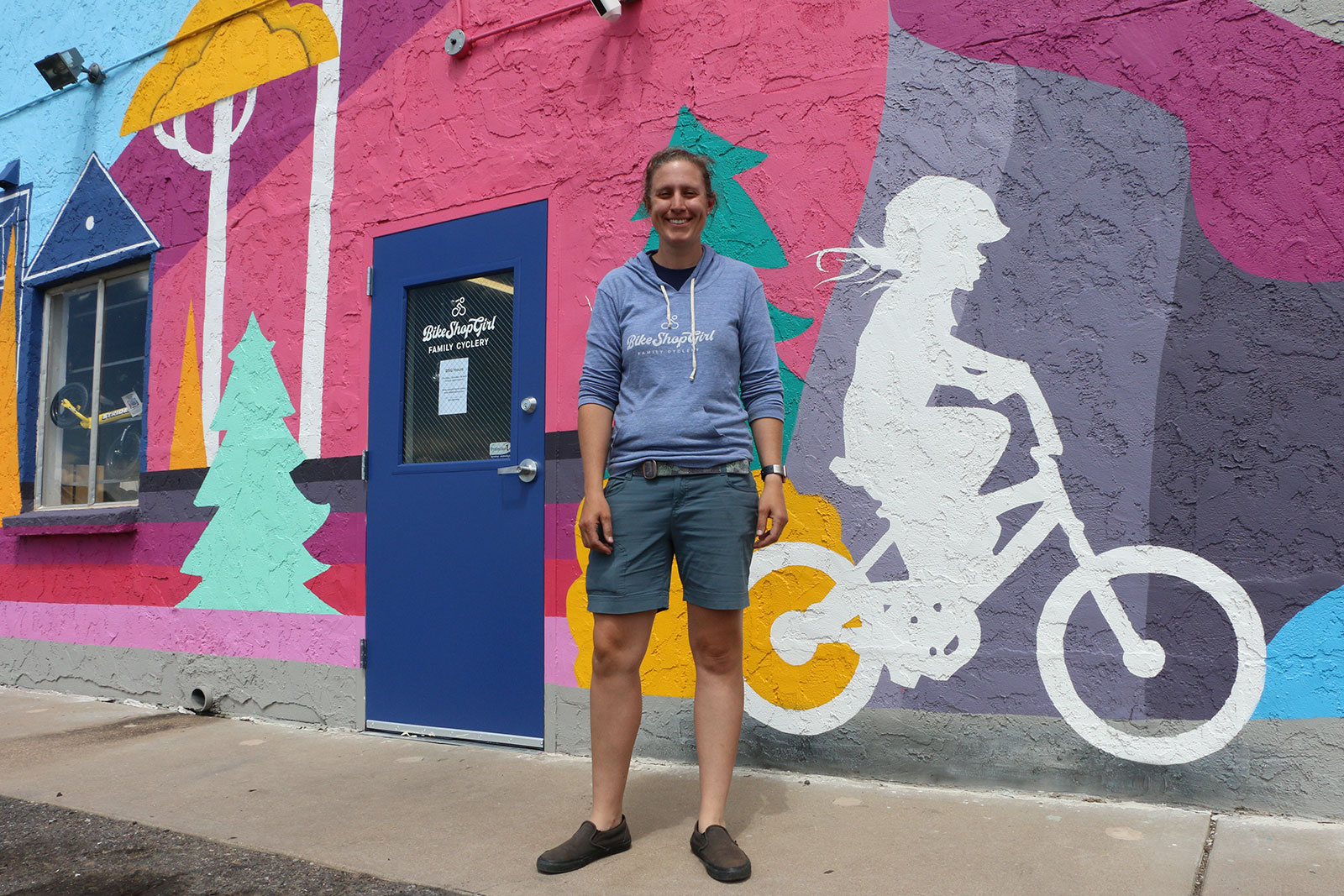The Local newsletter is your free, daily guide to life in Colorado. For locals, by locals.
The first clue that Bike Shop Girl Family Cyclery isn’t a normal bike shop is the kids’ play area, which features a munchkin-height table and chairs, a pile of puzzle games, and art materials. “When I was building out the shop, [bike] brands would ask, ‘How much space are you giving to kids? Are you crazy?’” recalls owner Arleigh Greenwald. “I’m just like, ‘That’s why I’m opening a bike shop!’”
Greenwald’s shop, which opened last November in the Stapleton neighborhood, just a few blocks from the Stanley Marketplace, is one of a nascent breed of bike shops that’s changing not just how bikes are sold, but how people use them. The new approach, which goes by the name family cycling, focuses on bicycles as a vehicle for fun and utility for the entire family.

Nationwide, Greenwald says, there are only a handful of shops with a similar focus, citing Seattle’s G&O Family Cyclery as a pioneer. That scarcity makes the Denver metro area a relative hotbed of family-cycling activity, with Bike Shop Girl joined by Boulder’s Front Range Cargo Bikes.
“Ninety-five percent of my clientele are families,” says Front Range owner Ryan Balciar, who says that while parents have the checkbook, kids are his primary customer. “I think a lot of bike shops, [families] aren’t really the clientele they want.” Denver and Boulder have a bumper crop of high-quality bike shops, but the focus of those shops is often on enthusiast road and mountain cyclists. Family cycling is about getting the kids to school without a car, but it’s also about fun and connection. Balciar and Greenwald don’t just focus on kids’ bikes, however. Both do a brisk business in cargo bikes—versatile utility bikes with an extended wheelbase and sturdy platforms for carrying kids, groceries, even the goods from a Costco run.
Cargo bikes, which come in varying styles with names like mid-tail and front loader, have been popular for decades in cycling-friendly countries like the Netherlands and Denmark, but are only now becoming more popular stateside. One reason? Electric pedal-assist, a newer technology that uses a lightweight, quiet electric motor to boost a rider’s own pedal power by two-and-a-half times. “It takes away all the obstacles,” says Balciar. Big hill? Heavy load? Late to work? Just bump up the assist level and you’ll barely break a sweat.
Traditional bike shops were hesitant to embrace electric bikes at first, although that’s changing now. Cargo bikes, however, are still very difficult to find in many shops, and customers often don’t know much about them. (Denver’s SloHi Bikes is a good example of a traditional shop trying to embrace e-cargo, but it’s the exception.) So Greenwald and Balciar start by asking lots of questions to make proper recommendations; Greenwald works mostly by appointment so she can devote uninterrupted time to each client.
Since cargo bikes can seem daunting, both shops have growing demo fleets, with overnight rental options so customers can take the bikes home and really live with them (rental prices are credited to a purchase). “Once they try it, most people say, ‘I didn’t realize how easy it was, what I could do with it, and how excited I am about getting on my bike versus driving,’” says Greenwald of the demo experience. “People are transformed.” She even demos kids’ bikes, and then will order whatever color the child wants.
Demos are just one aspect of Greenwald’s and Balciar’s friendly, low-stress approach to bike shopping. Front Range faces a multi-use greenway path and shares space with a tiny craft brewery, Kettle and Spoke, which makes for a laid-back vibe. Bike Shop Girl has a common lounge area and hosts regular events, like easy, short group rides on local greenways where they might hunt crawdads in the creek. She also holds regular social coffees, no cycling needed.
Greenwald and Balciar are both evangelists for bicycles, but not pushy ones. They like to let the experience speak for itself, to open up a world where a car isn’t the only option to go and do things. Balciar says in his experience, it leads to better connection as a family. “When kids get in a car, they kind of zone out,” he says, adding that the first parent he ever sold a cargo bike told him riding fostered deeper conversations with his kids than when driving. “On a bike, they’re physically and emotionally engaged,” says Balcier, “and that kind of makes everything just come right out.”











